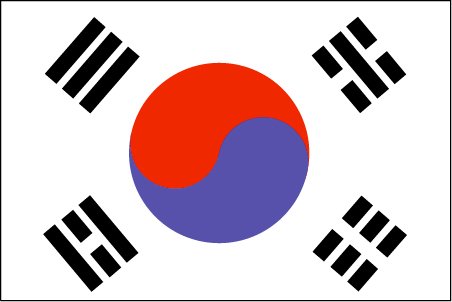South Korea Visa

Available Services
Looking to travel to South Korea for an extended period? For trips lasting over 90 days, you’ll need to obtain a visa prior to flying out, which is where our South Korea visa services come into play. Here at GulfVisa, we have almost two decades’ worth of experience securing travel documentation and can undertake the entire visa application processes on your behalf. We know first-hand just how long-winded and frustrating applying for a visa can be, and our South Korea visa service relieves you of this burden, enabling you to better spend your time preparing for your trip
How to apply for a visa to South Korea
- Read the guidelines - Carefully examine the application details for your chosen visa.
- Organise your documents - Gather everything you need, such as passport photos, flight booking confirmations, and the South Korea visa application form.
- Buy your visa - You can pay for your South Korea visa online using debit and credit cards, or Apple Pay.
- Submit your application - You can either post your application to GulfVisa or drop it off to our London office in Mayfair. We typically turn applications around in six working days, though this does not include delivery times.
South Korea Visa Cost
| Type of Visa | Service duration | Fees GBP (£) |
|---|---|---|
| Business Visa | Fast: Completed within 1 working day Standard: Completed within 10 working days |
From £319.00 |
Travel to South Korea - A mini guide
Among the twenty most-visited countries in the world, South Korea is a nation of incredible contrasts. From its bustling metropolises to its captivating countryside, there’s something for everyone in this beautiful South Asian republic.
South Korea's Culture
South Korean culture is massively influenced by Confucian principles, which emphasise the importance of group harmony, and respect for elders and authority. As such, factors like economic status, position in a business hierarchy and marital status all influence relations between Koreans. Other things from the past which impact South Korea’s culture include the observation of ancestral rites and holidays like Sŏllal (Lunar New Year) and Chusŏk (harvest moon festival), and rituals marking specific life milestones. For example, both the completion of a baby’s first 100 days and one’s 61st birthday are celebrated by families. In the 21st century, South Korea has become increasingly well-known for its pop culture, including K-pop music, TV dramas and cinema, which has come to be collectively referred to as “The Korean Wave”.
Around 50 million people live in South Korea, with roughly half of these residing in the Seoul Capital Area, the fifth-largest metropolitan district in the world. The country’s official language is Korean, and more than half of the population aren’t affiliated to any religion, with Protestantism and Buddhism the dominant faiths. While religion isn’t a cornerstone of South Korean culture, its food, film industry and sports (such as Korean martial arts) are.
South Korea's Economy
South Korea has a highly developed mixed economy, which is the fourth largest in Asia and tenth-largest in the world. The country’s outstanding education system is cited as sparking South Korea’s technology boom, helping transform it from one of the world’s poorest nations to a highly advanced one in just a few decades. Indeed, the International Monetary Fund has lauded the economy’s resilience against various crises down the years. The country’s main industries include textiles, steel, car manufacturing, shipbuilding and electronics.
South Korea's Most Popular Destinations
Top of most people’s must-visit lists are South Korea’s futuristic cities, chiefly Seoul, Busan and Daegu. Seoul, the country’s capital, is home to the world’s fifth-largest skyscraper in the form of the Lotte World Tower and the cutting edge Dongdaemun Design Plaza. Busan boasts the Busan Tower and the buzzing Centum City Area, and Daegu the colossal 83 Tower and the massive Seomun Market. Each city has its fair share of history and natural attractions too. You can’t go to Seoul without visiting its Gyeongbokgung or Deoksugung palaces, while Busan’s beaches are world-renowned, and Daegu’s Palgong Mountain is one the country’s most popular hikes.
Another reason why South Korea is such a popular destination is its incredible countryside. Perhaps the highlight is Seoraksan National Park, which has great trekking trails, over a thousand plant species and a vast range of fauna. Some of the most notable animals to live there include Korea gorals, musk deers and sparrowhawks. Another top nature destination is Nami Island, a stunning half-moon shaped isle situated in the Gangwon province. Here you can leisurely stroll along its beautiful tree-lined paths, take pictures with some of the ostriches roaming about and even zipline across the water surrounding the island. Other places of interest include Jeju Island, Odaesan National Park, and the coastal city of Sokcho-si








